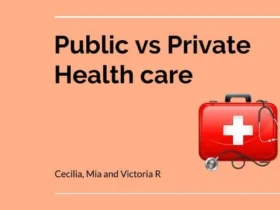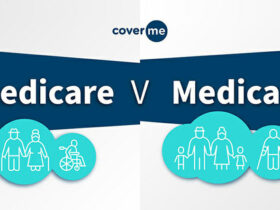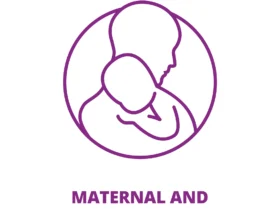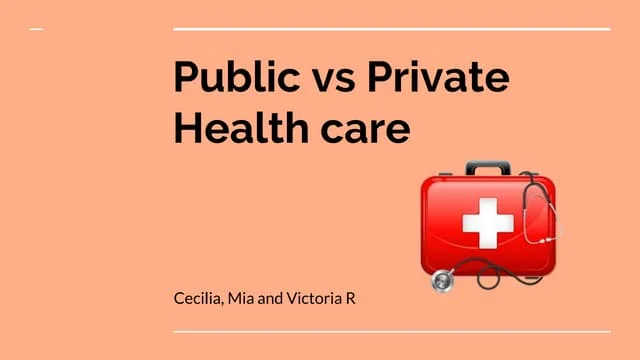The Pros and Cons of Public vs. Private Health Insurance
Selecting the type of health insurance that is right for you can make a big difference in healthcare access and financial security. Most usually, citizens may choose from public health insurance and private health insurance. These two types of insurance each have their own strengths and weaknesses, whether it be cost, coverage, or referred providers. In this article, we deconstruct these two options to help you decide if public or private health insurance is most appropriate for your needs.
What is Public Health Insurance?
Health coverage provided by a government program for the community, such as Medicaid, Medicare, or CHIP. Public health insurance in the US includes programs such as Medicare, Medicaid, and CHIP. These initiatives aim to make essential medical services affordable, if not free, for targeted populations—for example, one of these being low-income individuals, as well as seniors and the disabled.
Benefits of Public Health Insurance
- Lower Costs: Public health insurance programs (such as Medicare and Medicaid) typically have fewer premiums, deductibles, and out-of-pocket expenses than private plans. This makes it a pocket-friendly option for budget-restricted people.
- All Levels Of Care: Most plans provided through the public sector cover all levels of care, including hospitalizations, doctor visits, prescription drugs, and more.
- Pre-existing Conditions Not Excluded: Public health insurance programs do not exclude coverage for individuals with pre-existing conditions, ensuring that all eligible individuals can obtain necessary care.
- Preventive Care: Public insurance emphasizes preventive services (screenings, vaccines) to promote public health and reduce long-term healthcare costs.
Disadvantages of Public Health Insurance
- Limited Provider Choices: Public health insurance programs usually have a narrower provider network. This means reduced options for doctors, specialists, or hospitals.
- Long Wait Times: High demand for public health insurance may result in longer wait times for some medical procedures.
- Quality of Care: Some argue that public insurance could lower the quality of care, as providers may receive lower reimbursements and spend less time with patients.
- Income-Based Eligibility: Programs like Medicaid are income-based, meaning not everyone qualifies for public health insurance. This leaves some people stuck between too high for public insurance but unable to afford private insurance.
Private Health Insurance
Private health insurance is coverage provided by nongovernmental entities such as employers or insurance companies. You can buy private health insurance directly from an insurance company, through your employer, or on the Health Insurance Marketplace.
Private Health Insurance Pros
- More Flexibility and Choice: Private health insurance offers more flexibility in choosing healthcare providers. A private plan may grant you more choice in doctors and hospitals.
- Less Wait Time: With private health insurance, you typically have shorter wait times for procedures and specialist visits.
- Customized Plans: Private insurance allows for customization based on individual needs and preferences.
- Private Facilities: Some private insurance plans may offer access to private hospitals and better facilities than public healthcare options.
Disadvantages of Private Health Insurance
- Higher Costs: The most significant downside of private health insurance is its higher premiums, deductibles, and co-payments.
- Complex Billing: Private insurance plans can be complex with different coverage levels, co-pays, and coinsurance, leading to unexpected bills.
- Coverage Denials: Despite regulations like the Affordable Care Act, private insurers may impose restrictions on pre-existing conditions or types of treatment.
- Underinsurance: Some private plans may not cover all necessary medical expenses, leading to significant out-of-pocket costs.
Public vs. Private Health Insurance
It’s essential to know the major differences between public and private health insurance when making a decision:
- Cost: Public insurance is generally more affordable, while private insurance offers more options at higher prices.
- Coverage: Public plans provide essential health benefits, while private insurance may vary in what is covered.
- Provider Network: Public insurance usually has a limited network of providers, while private insurance gives broader choices.
- Access and Wait Time: Private insurance often means faster service, while public insurance can result in longer wait times.
Choosing the Right Health Insurance
Several factors will influence your decision to choose between public or private health insurance: your budget, healthcare needs, and whether you value flexibility. If affordability and comprehensive coverage are top priorities, public health insurance might suit your needs. However, if quick access to care and choosing your provider are important, private health insurance may be a better option




















Leave a Reply